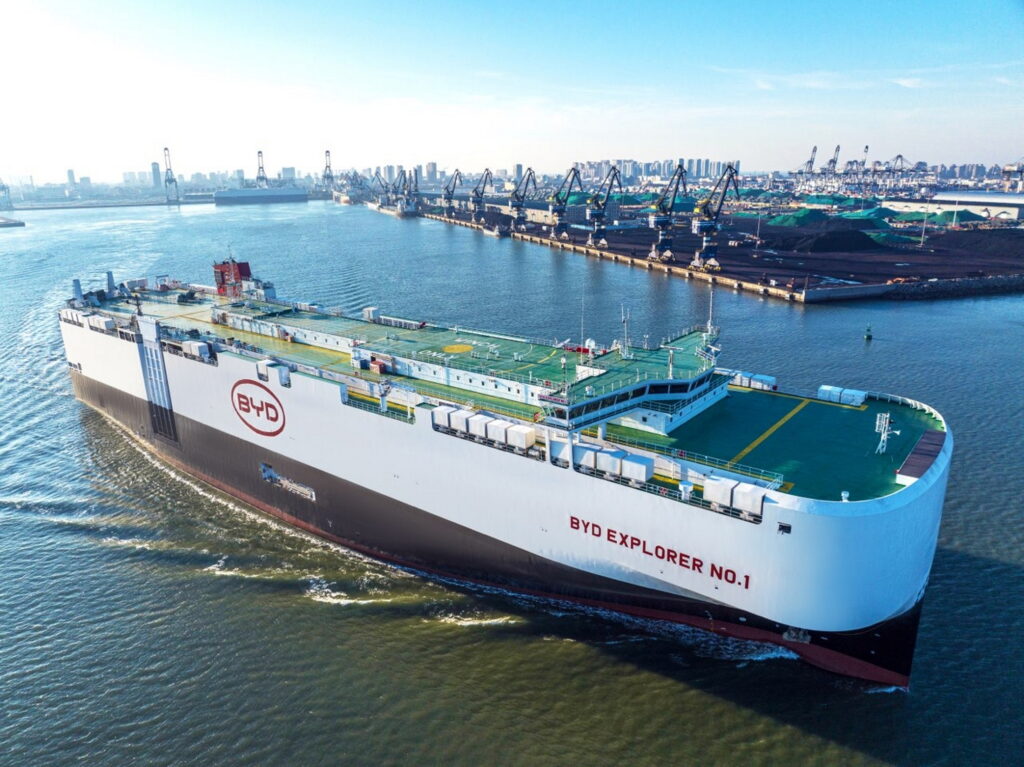China exports more cars than any other nation but it needs many more cargo ships to continue its growth
3 hours ago
 –>
–> 
–>
In January, BYD launched its first cargo ship exclusively for vehicle exports, and over the coming two years, it plans to add an extra seven car carriers to its fleet in a bid to boost its global sales and exports even further.
The first cargo ship built for BYD can carry up to 7,000 vehicles and was the first car carrier built in a Chinese shipyard to be used solely to export local vehicles overseas. It was built by CIMC Raffles, while construction of the next two cargo ships recently commenced in Guangzhou. They are being made by CSSC Offshore & Marine Engineering and will each have the capacity to carry 7,000 vehicles.
China became the world’s largest car exporter last year, taking the crown from Japan. BYD believes it can reduce transportation costs with its own vessels as opposed to paying exorbitant car carrier charter fees, Nikkei Asia reports.
advertisement scroll to continue
Read: China’s EV Giant BYD Now Exports Cars In Its Own Purpose-Built Mega-Ship
“BYD is going to deploy seven car carriers in the coming two years to ease the shortage of shipping capacity for automobile exports,” founder and chairman Wang Chuanfu said earlier this year.
Chinese carmakers desperately need new ships to meet the increasing demand. As of November last year, there were just 40 car carriers owned by Chinese shipping companies with a combined capacity of approximately 110,000 vehicles. By comparison, Japanese shipping firms own car carriers with a combined capacity of 1.6 million vehicles. Even Norway has a capacity of 930,000.
It is not just BYD that is looking to secure greater shipping capacity. State-owned SAIC plans to secure 14 car carriers within the next three years through its logistics company SAIC Anji Logistics, with some of them having the capacity to carry 9,000 vehicles. Chinese ship owners had 37 car carriers on order in November with a combined capacity of 290,000 vehicles.
The rush to secure cargo ships is similar to what happened in Japan in the 1970s. As the nation’s exports swelled from 1.1 million units in 1970 to 6 million units in 1980, local firms had to build new and larger car carriers to keep pace.

 –>
–> 
